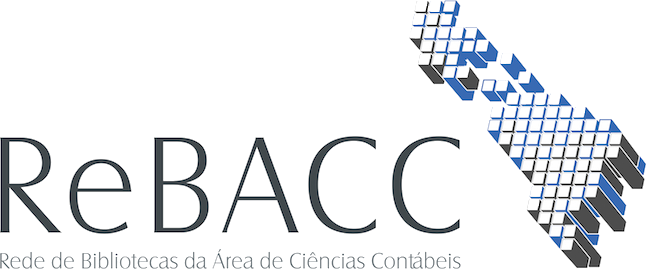Use este identificador para citar ou linkar para este item:
http://rebacc.crcrj.org.br/handle/123456789/4289| Título: | MINIMIZANDO AS DEFICIÊNCIAS DO PLANEJAMENTO OPERACIONAL COM O USO DO ORÇAMENTO BASEADO EM ATIVIDADES Minimizing the deficiencies of operational planning with the use of an activity-based budget |
| Palavras-chave: | Budgeting; Value Creation; Activity-Based Budgeting; Processo Orçamentário; Geração de Valor; Orçamento Baseado em Atividades |
| Editora / Evento / Instituição: | REVISTA DE CONTABILIDADE DO MESTRADO EM CIÊNCIAS CONTÁBEIS DA UERJ |
| Descrição: | O presente artigo analisa, por meio de pesquisa bibliográfica, uma abordagem alternativa ao modelo clássico de orçamento, que possui potencial para tornar mais eficaz o controle gerencial: o orçamento baseado em atividades (ABB). Nos últimos anos, o uso do custeio e da gestão baseados em atividades (ABC e ABM) tem se acentuado nas organizações; entretanto, a adoção do ABB, uma extensão natural
das outras duas metodologias, ainda se encontra em uma fase embrionária. Para justificar a pertinência desta abordagem, serão analisadas as disfunções mais comuns do orçamento tradicional e as armadilhas a serem evitadas na implementação de qualquer método orçamentário. Em seguida, será estabelecida uma relação entre o planejamento estratégico, o operacional e a geração de valor nas organizações. A
proposta deste estudo é, após identificar e discutir as características do ABC e do ABM, mostrar porque
o ABB é uma ferramenta de gestão adequada no ambiente de
negócios atual.
Palavras-Chave: Processo Orçamentário; Geração de Valor; Orçamento Baseado em Atividades.
ABSTRACT
This paper analyzes, through bibliographic research, an alternative approach to the classic model of budgeting, that has potential to make the management control more effective: the activity-based budgeting (ABB). In the latest years, the use of activity-based budgeting and activity-based management (ABM) has been spread all over the organizations; however, the adoption of ABB, a natural extension of those two tools, is still far from being generalized. In order to justify the
pertinence of this approach, the more common traditional budgeting deficiencies will be observed, as well as some pitfalls to be avoided in any budgeting method. Then, a relationship among strategy, the operational planning and the creation of value in organizations will be established. The goal of this
study is, after identifying and discussing the features of ABC and ABM, show why ABB is an adequate management tool to the today’s business environment.
Keywords: Budgeting; Value Creation; Activity-Based budgeting. This paper analyzes, through bibliographic research, an alternative approach to the classic model of budgeting, that has potential to make the management control more effective: the activity-based budgeting (ABB). In the latest years, the use of activity-based budgeting and activity-based management (ABM) has been spread all over the organizations; however, the adoption of ABB, a natural extension of those two tools, is still far from being generalized. In order to justify the pertinence of this approach, the more common traditional budgeting deficiencies will be observed, as well as some pitfalls to be avoided in any budgeting method. Then, a relationship among strategy, the operational planning and the creation of value in organizations will be established. The goal of this study is, after identifying and discussing the features of ABC and ABM, show why ABB is an adequate management tool to the today’s business environment. Keywords: Budgeting; Value Creation; Activity-Based budgeting. |
| URI: | http://rebacc.crcrj.org.br/handle/123456789/4289 |
| Outros identificadores: | http://www.atena.org.br/revista/ojs-2.2.3-06/index.php/UERJ/article/view/643 |
| Aparece nas coleções: | Revista de Contabilidade do Mestrado em Ciências Contábeis da UERJ |
Arquivos associados a este item:
Não existem arquivos associados a este item.
Os itens no repositório estão protegidos por copyright, com todos os direitos reservados, salvo quando é indicado o contrário.

